|
It is with pleasure that we introduce our new Manukura (President), Claudine Crabtree. You may know Claudine as the Tāmaki Makaurau/Auckland National executive representative. She has held this role for two years. Below is an introductory speech that Claudine presented at our AGM: Ko Maunga-taniwha te maunga Ko Tapapa te awa Ko Ngātoki-mata-whau-roa te waka Ko Ngāpuhi te iwi Ko Te Uri Mahoe te hapū Ko Mangamuka te marae Ko Otene te whanau Ko Claudine Crabtree takou ingoa. Just in case you are wondering who I am and what on earth I’m doing here I thought I would briefly fill you in... I live and work in Auckland, I’m married to Nick and we have 2 boys, Sam 19 and Ben 14, a dog called Phoebe and 2 cats. Apart from books and reading, I am an admirer of fashion, I love shopping and I love dancing. I started my working life in the corporate world as an E.A. or Executive Assistant to company CEO’s and MD’s. I took time off to travel with my husband who was sailing professionally so we lived overseas for a few years before returning to Aotearoa to have our 2 boys. With my husband's role in the sailing industry we moved to the UK in 2010 and in 2014 I started working at the Junior school my son was at in the library. I loved it and knew I had finally found my “thing”. Libraries and books have always been my happy place, so connecting young people to these is a dream come true for me. Currently I am Library Manager at Baradene College in Auckland. I think I have the best job in the whole world. I think being a school librarian is one of the most important jobs in education. And I want everyone else – pupils, parents, principals, politicians and the press to know that too, and to know the value and importance of school librarians and libraries in schools. This is why I joined SLANZA, why I volunteered to take on a National Executive role 2 years ago and why I put my hand up to become President. SLANZA started over 20 years ago and there have been many Presidents and N.E. members in that time – to all those volunteers for your time, effort, dedication, passion, tears and laughter (hopefully!) we acknowledge and appreciate we are here today because of you. We have an amazing N.E. team who volunteer their wealth of knowledge, experience, insight and passion for school libraries and librarians. Thank you to Sasha Eastwood for your mahi, leadership and passion. So much has been achieved and gained with you as President. Huge thanks and appreciation to Julia Smith (Te Tai Tokerau), Trena Lile (new for Tamaki Makaurau Auckland), Leonie Grigsby (new for Waikato Bay of Plenty), Clare Forrest (Wellington), Sally Brown (Aoraki), Lauryn Urqhart-Eaton (new for Otago), Kirsty Adam (Southland), and Sarah Stretch who joined us in September last year as our National Administrator. I am grateful and proud to be a part of this team and to lead SLANZA into this next chapter. And just a final thought – a quote I love about school libraries: And we could all do with a little madness from time to time. Happy reading and please get in touch if you have any ideas, questions, comments or feedback for us. Nō reira, tēnā koutou, tēnā koutou, tēnā koutou katoa Immediate Past President
We wish to acknowledge Sasha Eastwood who made a massive contribution to SLANZA in her tenure as President, selflessly heading and working on multiple projects to strengthen SLANZA and support school librarians and school libraries throughout Aotearoa. Three examples of her biggest achievements include the NZEI Pay Equity Campaign, building relationships and opportunities through the New Zealand Libraries Partnership Programme, strategic partnerships with library sector stakeholders, and the Governance Review. As immediate Past President, Sasha has taken on the lead in the SLANZA Research Project. Her commitment and dedication to SLANZA is truly inspiring and we are indeed fortunate to have her level of knowledge and experience.
0 Comments
LIANZA/SLANZA WEBINAR - LIBRARY AND INFORMATION QUALIFICATION GRANTS FOR SCHOOL LIBRARY STAFF21/8/2023 Tuesday, September 05, 3.30PM - 4.30PM
Join us to LEARN more about LIANZA and SLANZA Tertiary Grant funding to support library and information qualifications. These grants provide people working in, or new to, the library and information sector, with funding towards the costs of a library and information sector qualification. A new priority for funding in the 2023 funding round is for grants to school library staff starting a library and information qualification. This webinar will give you an opportunity to ask questions and learn about these grants to help you in your career. A new round of tertiary grants opens from October 4-23, 2023. For more information go here: https://www.librariesaotearoa.org.nz/grants-for-library-qualifications.html Presenters: · Sasha Eastwood - SLANZA and project advisory group member · Saskia Hill - Cashmere High School Library Manager and grant recipient · Kirsten Taylor or Stephanie Gillbanks - Perpetual Guardian REGISTER HERE https://lianza.wildapricot.org/event-5389887 Angela Cairncross | Communications Advisor LIANZA -Te Rau Herenga o Aotearoa I work Monday-Thursday P: 0212228076 A new round of tertiary grants towards a new library and information qualification opens from October 4-23, 2023. A new priority for funding in this round is for grants to school library staff starting a library and information qualification. Applicants are encouraged to apply for the grant this year as the opportunity may not be available in future years. Grants are available for tertiary qualifications for careers in public, school, tertiary, national and special libraries, and whānau, iwi and marae collections of taonga tuku iho. We encourage you to share information about these grants so your communities and staff have the opportunity to apply. School library staff talk in this video about what library and information qualifications mean for them and how the grants can help. Find out more here: https://www.librariesaotearoa.org.nz/grants-for-library-qualifications.html
You can get more information here: https://www.librariesaotearoa.org.nz/grants-for-library-qualifications.html Angela Cairncross | Communications Advisor LIANZA -Te Rau Herenga o Aotearoa I work Monday-Thursday P: 0212228076 NZ School Library Week 2023
We hope everyone has something planned for New Zealand’s school library week coming up. If you have not had time to put together a dashboard, we have great news! Accessit has created a dashboard for School Library Week. There are links to SLANZA’s downloadable resources such as bookmarks, posters and more. We have links to authors, and have created some quizzes at different levels – remember you can remove or edit any of the news items to suit your school. Go to ALeC to download your dashboard. Celebrate knowledge and imagination - Aotearoa’s School Library Week is happening next week.3/8/2023 School Library Association of New Zealand Aotearoa, SLANZA - Te Puna Whare Mātauranga a Kura, instigated Aotearoa NZ School Library Week to celebrate the valuable role school libraries have in education and to acknowledge the work of school librarians.
The inaugural event was a resounding success, and we are thrilled to once again celebrate the joy of reading, learning, and imagination. This year, the event will be held from 7 – 11 August. A plethora of exciting activities can be found on the SLANZA website, specifically designed by SLANZA and award-winning illustrator Paul Beavis, to help kura across Aotearoa celebrate their library spaces. Schools are encouraged to share School Library Week-inspired activities via social media using the #AotearoaSchoolLibraryWeek hashtag. Celebrating Aotearoa NZ School Library Week raises the profile of school libraries. It normalises the need for our tamariki to have access to this valuable resource. National and international research has shown the importance and necessity of having a school library, supported by a specialist librarian with an adequate budget, in improving student achievement, well-being, literacy, and in building information literacy, critical thinking and a love of life-long reading. We hope Aotearoa NZ School Library Week will provoke discussions on the correlation between Aotearoa’s crisis in declining literacy rates among our children and teenagers, and that fewer than a third of schools and kura in Aotearoa have paid library staff. Let’s come together to support our young readers, and reinforce the importance of the school library as a centre of knowledge and creativity. Mark it on your calendars and get ready for an inspiring and imaginative week ahead. For more information, visit the SLANZA website, www.slanza.org.nz Contact: Sarah Stretch – SLANZA National Administrator - [email protected] Hundreds of students in Christchurch and Wellington are set to be entertained and enlightened by finalists in the 2023 New Zealand Book Awards for Children and Young Adults at Books Alive events in the immediate lead up to the awards ceremony.
In Ōtautahi on 4 August, WORD Christchurch will host a selection of shortlisted authors and illustrators in panel discussions for primary and intermediate schools. There are still some spaces available for the 10am and 1pm sessions in the spacious Christ's College Auditorium. Interested teachers can find out more on our website, then book their classes in by emailing the WORD schools team. The Books Alive events in Pōneke, programmed by the talented Wellington City Libraries team, are already fully booked, having attracted 20 schools from around the city. All available spaces in the National Library’s Tiakiwai Conference Centre on Molesworth Street will be abuzz on the day of the awards ceremony, 10 August, with finalists conducting workshops on writing and illustration, behind-the-book talks, panel discussions, and live drawing sessions. Nicola Legat, Chair of the New Zealand Book Awards Trust Te Ohu Tiaki i Te Rau Hiringa, says that fostering a love of reading in tamariki and rangitahi by engaging them with books and their authors is an essential part of the award’s kaupapa. “After several years in which the pandemic forced much of our Books Alive activity online, we’re delighted to be bringing our finalists in person to Ōtautahi Christchurch again, and to be hosting a bigger-than-ever event in Pōneke Wellington. Our warmest thanks to our wonderful partners in both centres for helping to make this happen.” for Whiria te Tāngata – Kia toitū te mātauranga – weaving the people together for the sustainability of the library sector.
A second and final Whiria Te Tāngata cohort has been funded thanks to the New Zealand Libraries Partnership Programme, head here to apply! Do you want to be part of an amazing opportunity to support the sustainability of the Aotearoa New Zealand library sector? Are you looking to grow your strategic leadership skills and have a passion for mātauranga Māori, workforce development, data research and collective impact? We are looking for 10 talented people with a diversity of backgrounds and experience in the library sector to be part of a dynamic cohort of Kākaho (sustainability champions). Read the recently graduated Kākaho blogs, here. This is an 8-month learning and development opportunity for you to grow your networking, collective impact, and leadership skills within a national context. With the support of your workplace, being a Kākaho will see you applying practical skills to highly relevant issues facing the library sector today through action-led learning. The programme is delivered within four tukutuku (panel) modules. These are Waharua, the mātauranga Māori workstream and its connection to the land. Poutama symbolises the scaffolding of knowledge and its application to workforce capability. Purapura whetū signifies the complexity of data, research, and evidence work. Niho taniwha represents the determination needed for collective impact. Built upon a foundation of mātauranga Māori and through a Te Ao Māori lens, we ensure principles, key concepts, practices and approach to engagement and collaboration is informed by tikanga. You will work with other Kākaho across Aotearoa with dedicated support provided by Te Rōpū Whakahau. You will remain within your substantive role, while learning and developing with your fellow cohort for up to a day a week through both online and in-person experiences. What’s required:
Please feel free to forward this email on to any library or candidate you feel would benefit from this opportunity. To apply for Whiria te Tāngata, head here. EOIs close by 23rd July, 11.59pm. Before you can be confirmed within the role you will need to have all required documents in by 6 August 2023. Whiria te Tāngata is funded through the New Zealand Libraries Partnership Programme, led by Te Rōpū Whakahau and supported by the National Library of New Zealand. Drop by Drop: Poetry for Children Competition A new nationwide competition for adults who write poetry for children has been launched in the lead-up to Phantom Billstickers National Poetry Day in August. ‘Drop by Drop’ runs between now and 4th August and will be judged by renowned children’s writer and poet, Bill Nagelkerke. Entry is free and is open to anyone in New Zealand aged 18 years and over. The prize for the winning poem is $50. Up to three poems can be submitted on the theme of ‘water’ – to be interpreted as widely and wildly as entrants like. Poems should be aimed at 5-12 year olds. For further information visit the Poets XYZ Facebook Page or email [email protected]. The winner will be announced on Phantom Billstickers National Poetry Day on Friday 25th August. The competition is organised by the Poets XYZ, a trio of New Zealand children’s writers. Elena de Roo, Kathryn Dove, and Melinda Szymanik are keen to see poetry for children flourish in Aotearoa New Zealand and to develop a network of children’s poets. Kia ora koutou
SLANZA is involved in two initiatives to support weather-impacted school libraries. Schools can benefit from both of these initiatives, not just one or the other. The first is the Books Back Better project. Launched in March 2023 in response to Cyclone Gabrielle, Books Back Better is a fundraising effort between SLANZA, Booksellers Aotearoa New Zealand, and Books Back Better to gather monetary donations that will be used to buy Booksellers Tokens. These book tokens will be distributed to Aotearoa school libraries that have been affected by the cyclone, and who fit project criteria via an application process. National Library is working closely with SLANZA and the Books Back Better project to coordinate communications and offers of support for school libraries. Thank you to all those who have already donated to this cause. Donations will still be accepted until 3 July 2023 at http://www.slanza.org.nz/donate.html If you know of weather-impacted school libraries, please encourage them to apply for the Books Back Better funding. The application form can be found on our SLANZA website. The second initiative SLANZA is associated with is supporting the work being done by National Library to implement the government funding. Please read National Library’s communication on this:
Ngā mihi nui Julia Julia Smith BAppSci (LIS) Qualified Librarian Kerikeri High SchoolKerikeri High School Kia ora koutou We are incredibly excited and proud to let you know that Alan Dingley will be the next Te Awhi Rito Reading Ambassador for children and young people. Alan is a passionate School Librarian at Palmerston North Intermediate Normal School and SLANZA member. You may have watched his presentation, This Quiz is Lit, at the SLANZA Whakaohooho Online Conference 2021 or heard him as the voice behind SLANZA Sessions Podcast. Te Awhi Rito Reading Ambassador supports and champions the importance of reading in the lives of young New Zealanders, their whānau and communities, increasing visibility and awareness of reading across all sectors, helping to create a nation of readers. Alan will bring impressive experience, skills, and knowledge to the kaupapa of creating readers:
“I am so humbled to be chosen as the next Te Awhi Rito New Zealand Reading Ambassador and follow the wonderful mahi and impact Ben has made. It’s a brilliant opportunity and to have been selected is just such an amazing feeling. Our sincere congratulations to Alan for being selected for this prestigious role. We know he will be a fabulous advocate for promoting reading, School Librarians, and libraries. “I believe my strength will be reading engagement, on-the-ground work with children and young people, and building and strengthening community connections.” |
Categories
All
Archives
July 2024
|

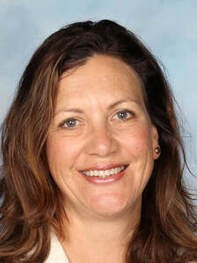
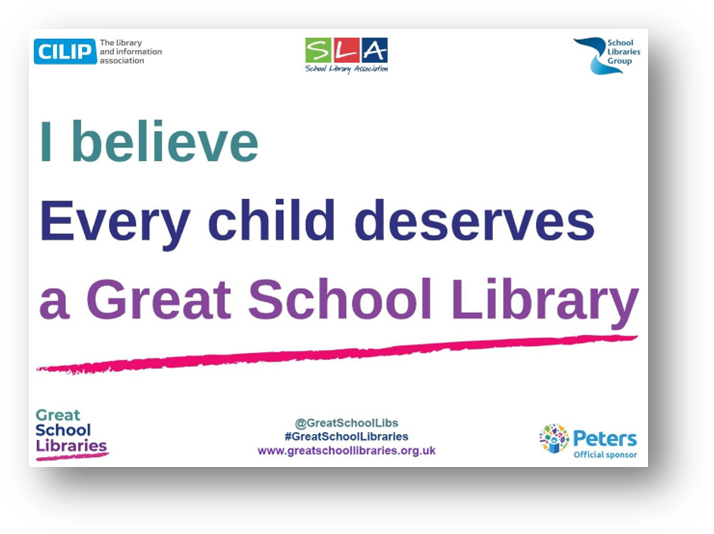
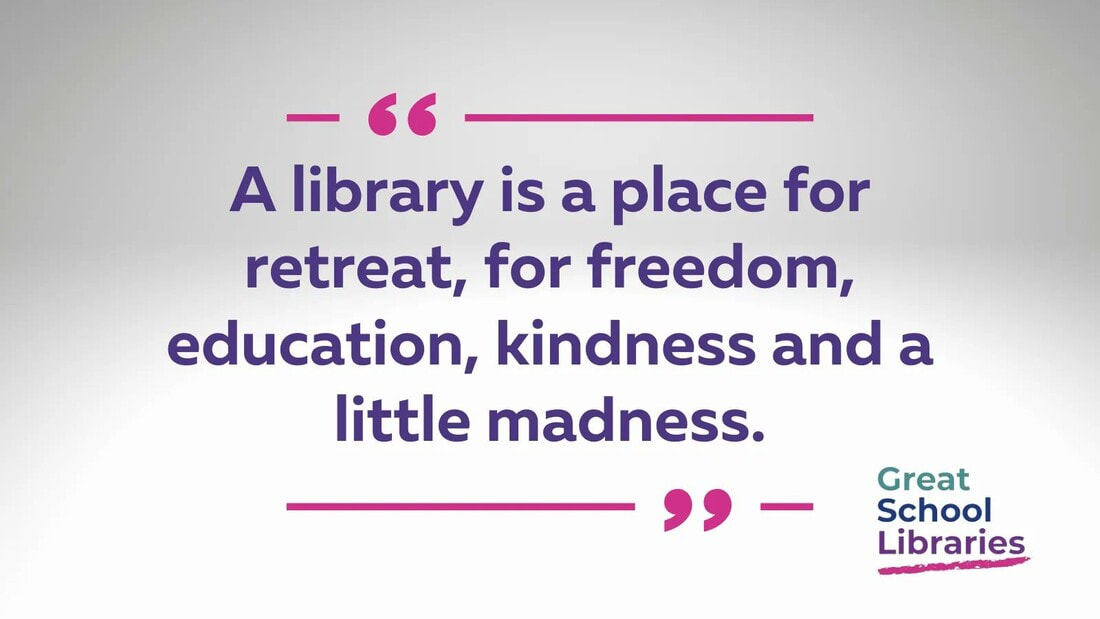


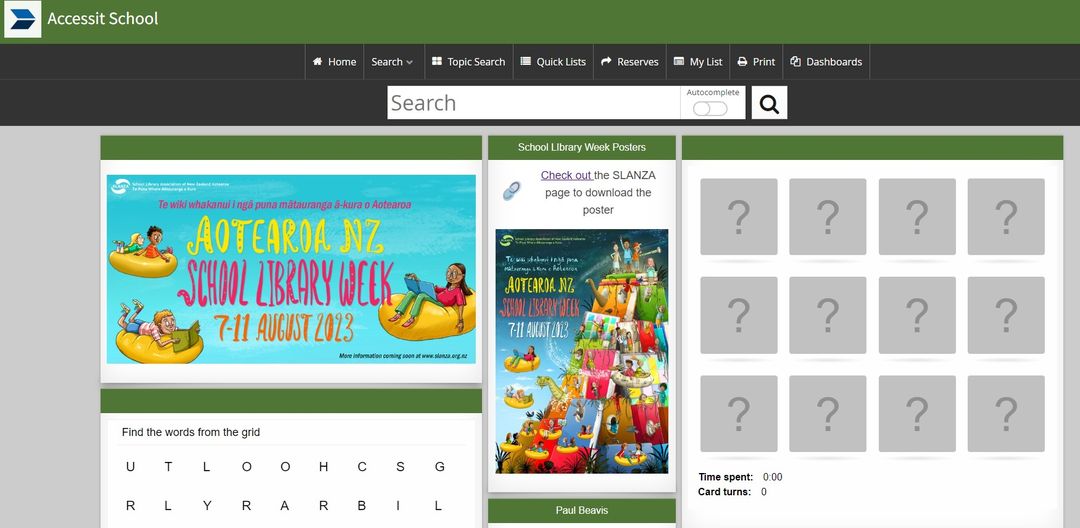
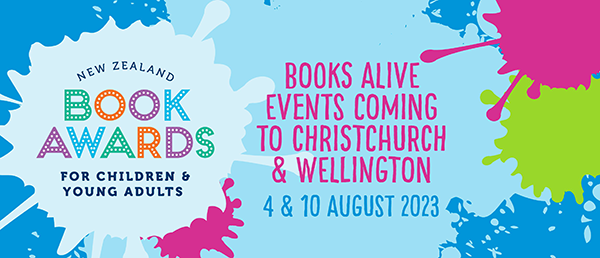
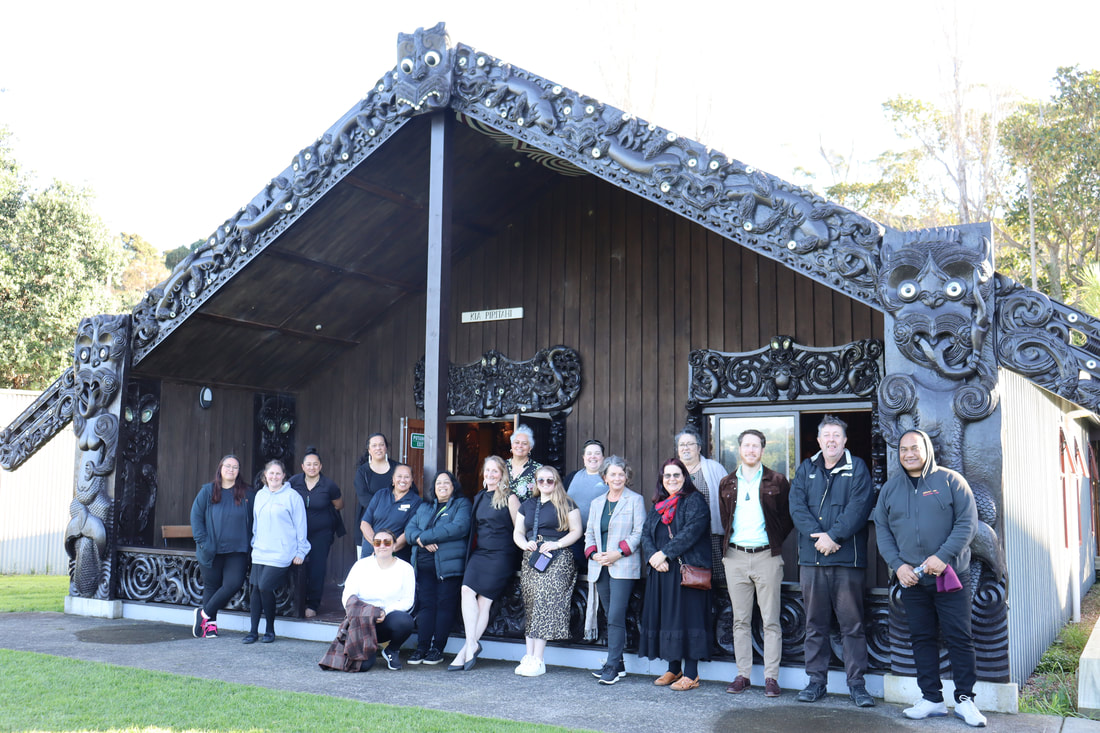


 RSS Feed
RSS Feed